The President's Message – 7 April 2025
Dear members,
Our two College journals, the Internal Medicine Journal (IMJ) and Journal of Paediatrics and Child Health (JPCH) play an important role in College life, and in our lifelong learning as physicians.
Although they don’t have the profile and impact of global journal giants such as the New England Journal of Medicine, both the IMJ and JPCH reflect the diversity of medical research that relates specifically to our countries, communities and our College.
I recently spoke with Professor Jeff Szer, following his conclusion of a remarkable 20-year span as Editor in Chief of the IMJ, during which he grew the Journal into what it is today. Jeff’s a distinguished haematologist and senior Fellow with a long and interesting career. We covered a lot of ground, including how his use of humour has helped those he’s trained.
Kind regards
Professor Jennifer Martin
RACP President
Would you prefer to read the transcript of Professor Martin's interview? Please visit this website and simply copy and paste the following weblink of the YouTube video into the automatic YouTube transcript generator: https://www.youtube.com/watch?v=KGUv3yoEcyk
In February 2025, I met with Professor Nitin Kapur (PCHD President), Dr Niroshini Kennedy (PCHD President-elect) and Dr Simon Denny (Adolescent and Young Adult Medicine Committee Chair Committee Chair) to discuss the current statement by the RACP regarding gender care. This followed recent government activities, reviews, and publications. A statement of support for our trainees and Fellows is now available with a copy of correspondence recently provided to the Queensland Minister for Health.
Professor Jennifer Martin
RACP President
As your medical College and CPD provider, we're required to include medical registration numbers in our CPD compliance reports to the Medical Board of Australia. To help us maintain accurate records and prevent any reporting errors, we kindly ask you to take a quick moment to validate or provide your Ahpra registration number.
Here's how you can easily do this:
- Log in to MyRACP
- Review your captured registration number
- Confirm or update if needed
For any questions, please contact Member Support.
With the Australian Federal Budget delivered recently, we can now announce some important funding commitments consistent with our advocacy. Critical medicines supplies, hospital funding, My Health Record reform, First Nations healthcare and aged care were funded in ways that are consistent with our recent advocacy work. This sets the College up for ongoing advocacy as we head into the Federal election. Find out more in our Federal Budget summary.
We thank all members who offered feedback, which enabled us to develop a compelling Pre-Budget Submission. We encourage all members who would like to get involved in our policy and advocacy work or offer further feedback to email us. You can also keep updated by reading our latest media releases.
Read the summary
The 2025 Australian Federal Election is coming: now is the time to advocate for change
The RACP has released its 2025 Election Statement to support discussions with MPs, policymakers, and community leaders. The message is clear: we need urgent action to strengthen our healthcare system.
Our 2025 Election Statement provides clear asks to grow and support trainee and physician workforce, improve access to medicines and deliver better Medicare for all. The statement also prioritises prevention, equitable care for key patient groups and the climate resilience of the healthcare system.
“In the last four years, the percentage of patients waiting longer than acceptable times for specialist care has risen from 22 per cent to 29 per cent, with these delays disproportionately impacting regions" says RACP President, Professor Jennifer Martin.
"Because of the ageing population and the growth in chronic disease more Australians than ever are seeking specialist care, yet we haven’t implemented workforce reforms that can help improve patient access.”
Physicians and paediatricians can drive meaningful change. Use our statement in your conversations and help advocate for a better healthcare future.
Election Statement l Media release
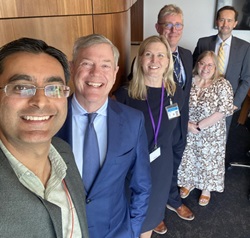 In February 2025, RACP representatives met the Queensland Minister for Health, the Hon Tim Nicholls, in Brisbane. The aim of the meeting was to develop a relationship with the new Queensland Government and provide the RACP’s perspective on workforce, wellbeing, and other priorities.
In February 2025, RACP representatives met the Queensland Minister for Health, the Hon Tim Nicholls, in Brisbane. The aim of the meeting was to develop a relationship with the new Queensland Government and provide the RACP’s perspective on workforce, wellbeing, and other priorities.
We urged the Queensland Government to provide junior doctors with rural and remote medicine experience, attractive training, stimulating career opportunities, and quality professional development opportunities.
Some of the key topics we advocated for include:
- effective and flexible attraction and retention strategies
- increased resourcing for publicly funded clinics
- better access to specialist neurodevelopmental assessment for children
- better access to geriatric medical and psychogeriatric services.
Workforce is a shared priority area for the RACP as well as the new minister, and we highlighted the need for protected teaching and learning time. We also conveyed the challenges of rising demand for clinical care, and the stresses that puts on medical education. The minister acknowledged these concerns, and indicated his awareness of the various non-clinical physician duties such as leadership, research, mentoring, and administration.
The minister also used the meeting to brief us on the government’s intention to proceed with the announced capital works program across the healthcare portfolio, despite at a reduced pace.
One of the reasons the RACP engages with health ministers and governments is to establish itself as a leading authority on healthcare, providing expert advice and advocating for the issues most important to its members.
In February, representatives of RACP’s Tasmanian Committee met with the Tasmanian Minister for Health, the Hon Jacquie Petrusma, to discuss critical concerns about the physician and trainee workforce, their wellbeing and to advocate for improved access to health services for priority populations.
Key matters discussed included the paediatric workforce shortages in North West Tasmania, as well as within the broader paediatric neurodevelopmental specialty. These shortages are having a significant impact on both patients and the wider community, making it an urgent issue for healthcare providers and policymakers.
Another major topic addressed was the challenges facing trainee physicians. These included instability caused by short-term contracts, the unfilled Basic Physician Training (BPT) positions at Launceston General Hospital, and the excessive delays in obtaining approvals for trainee research projects. These issues are affecting the ability of trainees to progress in their careers and contribute to the healthcare system effectively.
The minister committed to continued engagement with the RACP Tasmanian Committee on these and other issues. The minister invited the committee representatives to meet with her again. Plans are also underway for the Minister to attend an RACP Tasmanian Committee meeting signalling a commitment to sustained dialogue and progress on these vital healthcare matters.
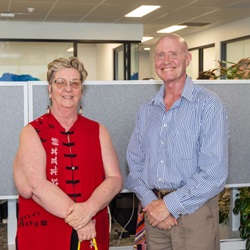 The RACP extends its deepest gratitude and congratulations to Dr Christine Connors OAM on her outstanding contributions to healthcare in the Northern Territory. After 35 years as a dedicated public health physician, Dr Connors has retired, leaving behind an extraordinary legacy of advocacy, leadership, and reform.
The RACP extends its deepest gratitude and congratulations to Dr Christine Connors OAM on her outstanding contributions to healthcare in the Northern Territory. After 35 years as a dedicated public health physician, Dr Connors has retired, leaving behind an extraordinary legacy of advocacy, leadership, and reform.
Throughout her career, Dr Connors played a pivotal role in shaping health policy and public health initiatives. She served on several RACP committees, including as Chair of the RACP Northern Territory Committee (2014-2016), a member of the College Policy and Advocacy Committee, and the Northern Territory representative on the Australasian Faculty of Public Health Medicine Committee.
She led efforts in nationally recognised alcohol harm reduction, played a key role in managing remote outbreaks during the pre-vaccine years of the COVID-19 pandemic, and contributed to policies that have saved lives. In collaboration with the Royal Australasian College of Surgeons and the Australasian College for Emergency Medicine, her work helped reinstate a safer speed limit across the Northern Territory. She was also instrumental in developing the Northern Territory Preventable Chronic Disease Strategy, improving health outcomes and life expectancy, particularly for Indigenous communities.
Dr Connors' tireless commitment to public health has left an enduring mark, and we thank her for her invaluable service. We also congratulate Adjunct Professor Paul Burgess, a Fellow of the RACP’s Australasian Faculty of Public Health Medicine, on his appointment as Acting Chief Health Officer of NT Health. We look forward to his leadership in this vital role. Image credit: NT Health
 Thousands of prostate cancer patients across the world are benefiting from more accurate diagnoses and effective treatment options thanks to groundbreaking research by Professor Michael Hofman, recipient of the RACP Foundation’s 2024 Eric Susman Prize, which was announced today.
Thousands of prostate cancer patients across the world are benefiting from more accurate diagnoses and effective treatment options thanks to groundbreaking research by Professor Michael Hofman, recipient of the RACP Foundation’s 2024 Eric Susman Prize, which was announced today.
The Eric Susman Prize is a prestigious award presented by the College to a Fellow for best contribution to the knowledge of any branch of internal medicine.
Read more
As the philanthropic arm of the College, RACP Foundation plays a crucial role in bridging the gap between clinical practice and medical research. Through its annual research awards and grants program, it provides key support to emerging and established researchers, those embarking on a research career, and others with significant potential looking to further develop their skills in other areas.
International Grants
Applications are now open for International Grants, which assist medical graduates or specialists from outside Australia and Aotearoa New Zealand who intend to further their knowledge in fields of medical education and research. There are two grants available, which have a value of up to $10,000 AUD and $15,000 AUD.
Education Development Grants
Education Development Grants provide funding to further educational training or for the development of educational initiatives. Funding is for projects or study programs undertaken in the year of application. Applications close on Monday, 7 April 2025 at 11.59pm AEST.
Major research awards Fellowships and scholarships
Applications for the major research award categories open Wednesday, 1 May 2025. These Fellowships and Scholarships are for funding in 2026. Most awards are available to trainees and Fellows in Australia and Aotearoa New Zealand. Please refer to the RACP Foundation website for information on specific eligibility requirements for each award.
Further tomorrow's medicine today
Thank you to those who have contributed to the RACP Foundation to make many of these opportunities available. Your donation not only helps us fund the best and brightest medical minds across Australia and Aotearoa New Zealand, it inspires the beginning of major medical breakthroughs. Find out more if you would like to donate to RACP Foundation. Donations are tax-deductible.

We are proud to celebrate six exceptional RACP members who have been awarded Fulbright Scholarships, a prestigious international academic exchange honour. These scholarships enable them to undertake vital research projects in the United States, focusing on areas such as cancer research, cardiovascular health, and health inequity.
We congratulate this year’s recipients, including these outstanding RACP members:
-
Dr Christian Said (Cardiologist, Fellow) – Optimising the use of temporary heart pumps in heart attack patients.
-
Dr Joshua Wong (Cardiologist, Fellow) – Identifying cancer survivors at risk of developing heart dysfunction.
-
Dr Daniel Clayton-Chubb (Gastroenterologist, Fellow) – Investigating links between lifestyle, genetics, and early-onset colorectal cancer.
-
Conjoint Professor Nada Hamad (Haematologist, Fellow) – Expanding access to life-saving cellular therapies.
-
Dr Allen Gu (Basic Trainee) – Using biostatistics to uncover insights in cancer biology.
-
Dr David Motorniak (Basic Trainee) – Advancing ethical frameworks for public health decision-making.
Read the media release l Find out more
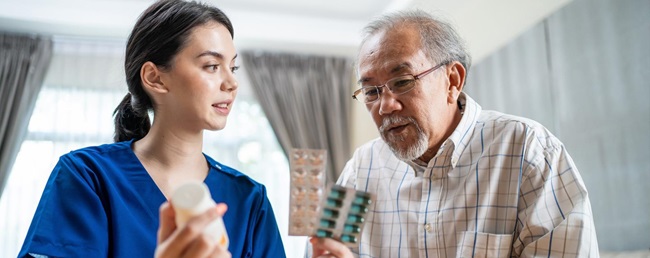
Approximately one-third of antimicrobial prescriptions in Australia are unnecessary, contributing to the growing issue of antimicrobial resistance (AMR). This new RACP guest article, written for CSIRO's AMR Action and Insights, explores how evolving clinical practices can help curb AMR. It features insights from Professor Jennifer Martin, RACP President, and Professor Joseph Doyle, President of the Australasian Society for Infectious Diseases (ASID).
"Australia is at a critical inflection point when it comes to antimicrobial resistance. Healthcare providers can use the RACP’s ASID Evolve Top-Five recommendations to improve the value and efficiency of their care and to curb the development of AMR" said Professor Martin.
Most recently, the RACP Australasian Society of Clinical and Experimental Pharmacologists and Toxicologists, released Evolve Top-5 recommendations that focus on promoting the appropriate use of medicines that offer high-value care and can help to prevent the unnecessary prescribing of antimicrobials.
Read more l Find out more about Evolve
Feedback is actively encouraged across all programs and activities at the RACP. As the 2025 training year progresses, we are especially keen to hear from trainees and educators involved in our New Curricula programs. To provide your own anonymous feedback, please complete this five-minute survey.
Your insights can help your College:
- inform ongoing program development
- facilitate sufficient support for trainees and educators
- understand what is working well in the new curriculum.
In this video, leading RACP educators, Dr Paul Jauncey, Dr Siddharth Sharma, Dr Renee Eslick, Dr Drago Bratkovic and Dr Alice O'Connell discuss how the new curricula will evolve, and the importance of feedback.
Find out more l Share feedback
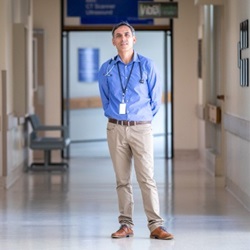
Listen now
In Aotearoa New Zealand, the proportion of doctors identifying as Māori has doubled from where it was a decade ago to over five per cent. But there is still a long way to go before the workforce is representative of the broader population, which is 17 per cent Māori.
In recent years, the Auckland and Otago Medical Schools have turbo-charged their intake of Māori and Pasifika students, but these graduates don’t seem to have trickled through to the RACP in great numbers. Just 3.5 per cent of general physicians and 4.8 per cent of paediatricians identify as Māori, and Pasifika doctors make up a further one and two per cent respectively.
In this podcast, three Māori medics discuss how the culture of training environments can be made more welcoming to junior doctors with diverse ethnic backgrounds. This discussion takes place in light of an independent review into the clinical examination for paediatrics in Aotearoa New Zealand, which found issues with standardisation, transparency and cultural safety. 2024 was a tough year for Māori health more broadly, as it saw the disestablishment of a dedicated Health Authority, Te Aka Whai Ora, after just 12 months of operation.
Guests
- Dr Danny de Lore FRACP (Rotorua Hospital; University of Auckland)
- Dr Matthew Wheeler FRACP (Tauranga Hospital; University of Auckland)
- Dr Ngaire Keenan PhD (University of Otago; Women and Children’s Hospital, Adelaide)
Please visit the Pomegranate Health webpage for a transcript and supporting references.
Log on to MyCPD to record listening and reading as a prefilled learning activity. Subscribe to
new episode email alerts or search for ‘Pomegranate Health’ in
Apple Podcasts,
Spotify,
Castbox or
any podcasting app.
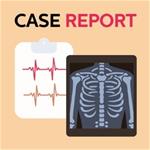 Listen now
Listen now
This case report comes to you from Brigham and Women’s Hospital in Boston, a huge teaching hospital that serves the Harvard Medical School. The 52-year-old woman presented with clumsiness and paresthesia of the right hand that had persisted for several days. She also had a headache and three weeks prior to presentation had undergone a suboccipital craniotomy for a Chiari I malformation. To complicate things, there was a past medical history of migraines and a family history of a Factor V Leiden mutation. The identified diagnosis is one in which evidence is limited for aspects of management, and the topics of uncertainty and mentorship in medicine also arise in this discussion.
Guest
- Galina Gheihman, MD (Brigham and Women’s Hospital; Harvard Medical School)
Hosts
- Associate Professor Stephen Bacchi (Massachusetts General Hospital; University of Adelaide)
- HaeLynn Gim (Harvard Medical School)
Please visit the Pomegranate Health webpage for a transcript and supporting references. Log on to MyCPD to record listening and reading as a prefilled learning activity. Subscribe to new episode email alerts or search for ‘Pomegranate Health’ in Apple Podcasts, Spotify, Castbox or any podcasting app.
This dedicated space serves as your go-to resource for all things related to the Gender Equity in Medicine Action Plan and the Membership Diversity and Inclusion Action Plan. It is a living resource and will continue evolving as we move forward with the implementation of the action plans and as new resources become available.
Find out more about:
Find out more
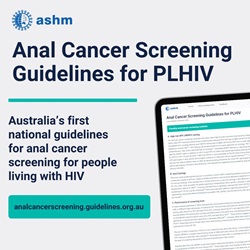 Australia’s first anal cancer screening guidelines for people living with HIV has been released by the Australasian Society for HIV, Viral Hepatitis and Sexual Health Medicine (ASHM). The guidelines provide a critical framework around screening and treatment for healthcare providers.
Australia’s first anal cancer screening guidelines for people living with HIV has been released by the Australasian Society for HIV, Viral Hepatitis and Sexual Health Medicine (ASHM). The guidelines provide a critical framework around screening and treatment for healthcare providers.
Professor Jason Ong FRACP and Vice-President of the ASHM is a Melbourne-based sexual health physician and researcher. He said evidence-based screening was essential to lower the anal cancer incidence rate in men who have sex with men who are living which HIV, which is more than 60 times higher than the general population.
The guidelines were developed by ASHM in collaboration with representatives from community and sector organisations, including Alfred Health, Douglass Hanly Moir Pathology, Melbourne Sexual Health Centre, Monash University, National Association of People with HIV Australia, Positive Life NSW, St Vincent's Health Australia, Kirby Institute, and UNSW Sydney.
The guidelines l Read article
Eligible applicants are invited to apply for a grant of up to $12,000 to complete CPD activities like conferences, workshops, clinical attachments, and peer review. The application deadline is Tuesday, 15 April 2025. Support for Rural Specialists in Australia helps rural specialists stay skilled and engaged so they can provide the best care to their communities. Visit the SRSA website for more information and to submit an application.
Eligibility
To apply for an SRSA grant, you must work rurally as either:
- a (non-GP) specialist
- an Aboriginal and/or Torres Strait Islander specialist trainee
- a specialist international medical graduate under assessment.
If you received a grant in Support for Rural Specialists in Australia' previous funding round (funding round nine), you are not eligible to apply in this round. If you were unsuccessful in the past, you are encouraged to apply again.
Support for Rural Specialists in Australia is funded by the Australian Government Department of Health and Aged Care and managed by the Council of Presidents of Medical Colleges.
Find out more
More you may be interested in
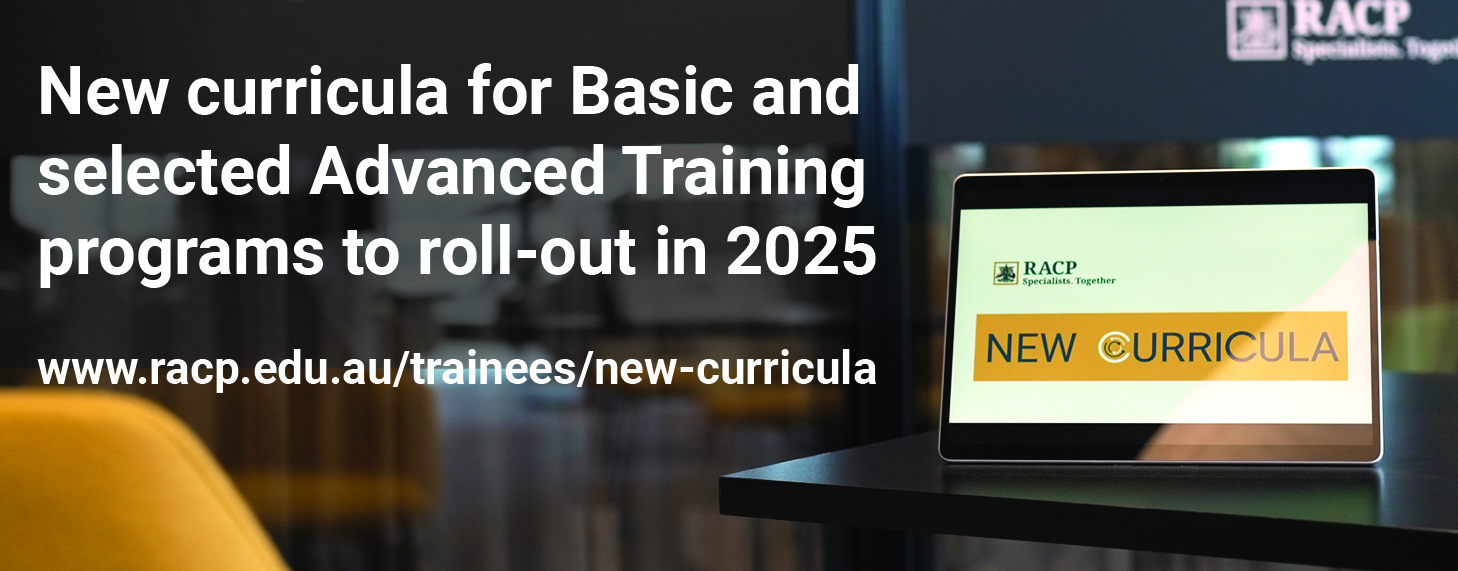
As healthcare workers who dedicate our lives to helping others, it’s important to take the time to care for ourselves. We would like to remind everyone that it's okay to not be okay. If you need someone to talk to, you can reach out to the RACP Support Program. It's a free, 24/7 and completely confidential support service that is delivered externally through Converge International.
Whether you have something worrying on your mind, are finding getting out of bed to be a struggle, or just feel like talking to someone for helpful, judgement-free advice, this free support service may be just what you need.
Find out more

Did you know that RACP Benefits gives you exclusive access to a range of discounts and offers from leading brands and retailers in Australia and Aotearoa New Zealand? Simply log in to the portal to start shopping and saving today. These special deals are exclusive to the College and made possible by our benefits partner, Member Benefits Australia.